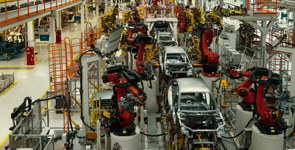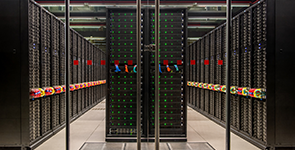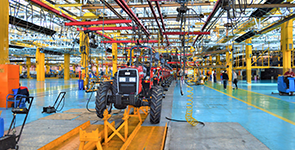10 chapters exploring the future of tech and its impact on society

The Golden Age at our door
The economic recession resulting from the Great Confinement of the Covid-19 pandemic could be the gateway to a Golden Age of Smart, Sustainable and Global Growth. History shows that, from the Industrial Revolution onwards, similar moments have repeatedly occurred in different technological revolutions.

The new surveillance society: Your data
Private surveillance has become a global issue. Also, there is no law prohibiting it: it is legal to track, store and sell the information. Increased connectivity has led to a new type of currency: your data. This chapter focuses on the protection of citizens’ digital rights as the key to transform the world.

Post-truth, fake news and alternative facts
The two words “fake news” point to everything bad about our democracies. Suspicions have invaded speeches. The proliferation of stories has ruined confidence in narratives and has led to the discrediting of the narrator. The chapter uses the first speeches about the Coronavirus crisis as an example.

Artificial Intelligence and ethics
Artificial Intelligence (AI) has fascinated people for a long time. Science fiction has had a profound impact on how AI is perceived and discussed today. Therefore, public discussion is fuelled by unrealistic expectations. This chapter pretends to offer a more objective view of this discussion and answer some questions about AI and the ethical debate that surrounds it.

The gig economy
The gig economy has exploded into public consciousness over the past decade, but conceptually it is not new. In the modern sense it means workers operating through digital platforms, offering services online to anyone who wants them. This chapter explores this new model from different points of view.

Towards a digital ‘cold war’
Technology tensions are as old as time: technology both advances wars and can be advanced by war. And then, as some would argue is happening today, technology can be the casus belli itself. This chapter studies the necessity to establish a regulatory framework to ensure the digital future of global society.

Climbing to the top
Countries are locked in an expensive high-stakes contest to develop the speediest computers on the planet for bigger reasons than to demonstrate their technological and economical prowess. This chapter defends why the future generation of supercomputers will (need to) be built with open hardware and software.

The role of humans in the digital society
The central question in this chapter is how to shape digitisation so that it enables the society that its citizens want. In order to answer this question, we first need to think about the ways in which people are involved.

Public value, platform capitalism and digital feudalism
Capitalism has always excelled at creating new desires and cravings. The big platforms, however, have both accelerated and inverted this process. This text claims that governments can and should be shaping digital markets to ensure that collectively created value serves collective ends.

Urban autopia (self-driving vehicles)
Mobility is key to making our cities liveable; it enables people and goods to get around. Autonomous cars are expected to ease commutes, make driving safer and increase the quality of urban life. There are several stages towards this sunny future, but one step that is easy to forecast is the imminent rise of the fully autonomous vehicle.
11 academics

Mariana Mazzucato

Virginia Dignum

Jeremias Adams-Prassl

Aurélie Filippetti

Carlota Pérez

Marijke Roosen

Joanna Bryson

Natasha de Teran

Mateo Valero

Rainer Kattel

Raúl Rojas











10 journalists

Christian Salmon

Jennifer Kite-Powell

Robin Wauters

Martin Eisenlauer

Andrés Schäfer

Tim Wallace

Federico Guerrini

Bennie Mols

Parminder Bahra

Rene Millman










Capitalism has always excelled at creating new desires and cravings. The big platforms, however, have both accelerated and inverted this process
Even though machines will never be or feel human, we have already built systems capable of expressing human fallacies
The gig economy is undeniable back. Its new form is radical and has changed industries almost overnight
